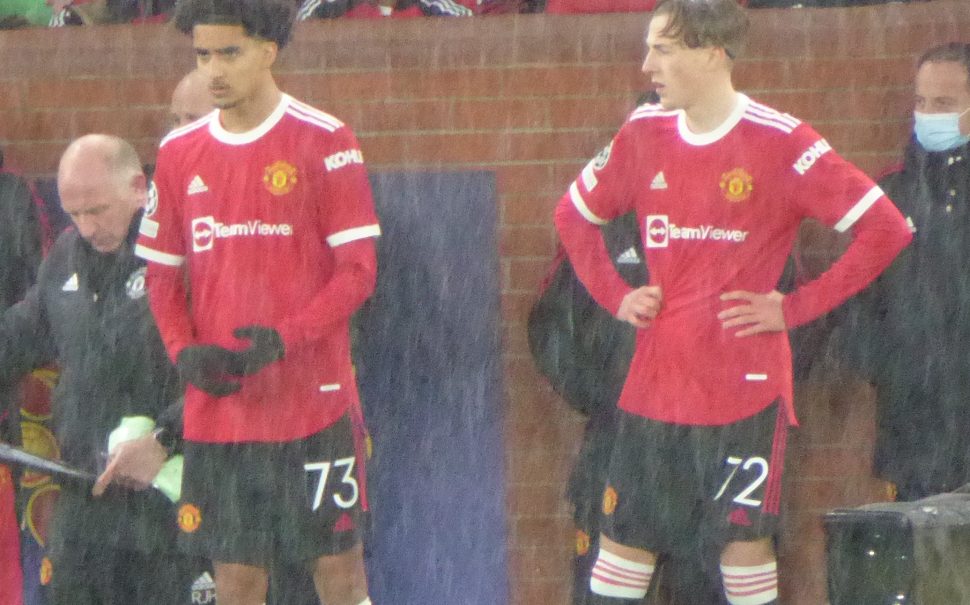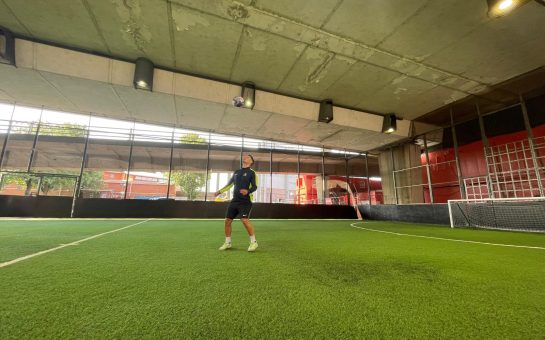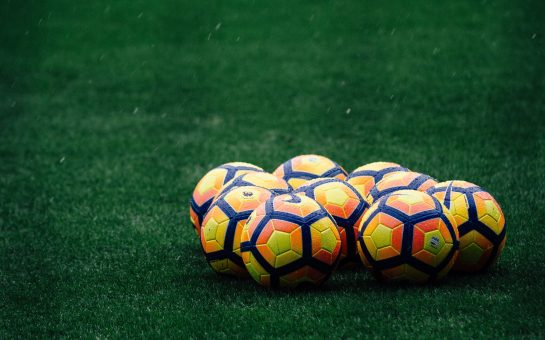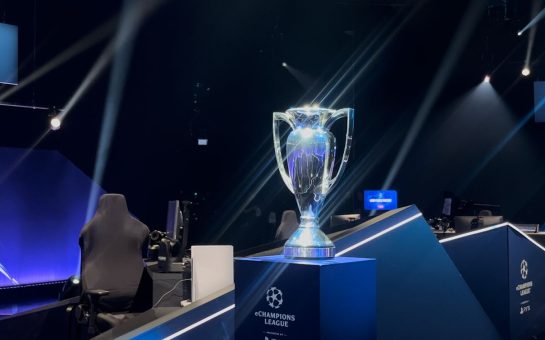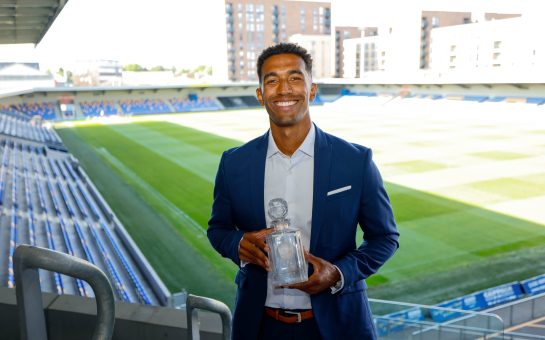British South Asians across Manchester look back on the legacy of Manchester-born midfielder Zidane Iqbal – who has finalised a move from boyhood club Manchester United to FC Utrecht.
Iqbal, born and raised in Manchester and a product of the United Academy, made his first-team debut in December 2021 in the 89th minute of a Champions League fixture against Swiss side BSC Young Boys.
With this substitution, the 20-year-old made history by becoming the first British-born South Asian to play for Manchester United,
He also became only the second British South Asian to play in the Champions League – after Michael Chopra for Newcastle in 2002.
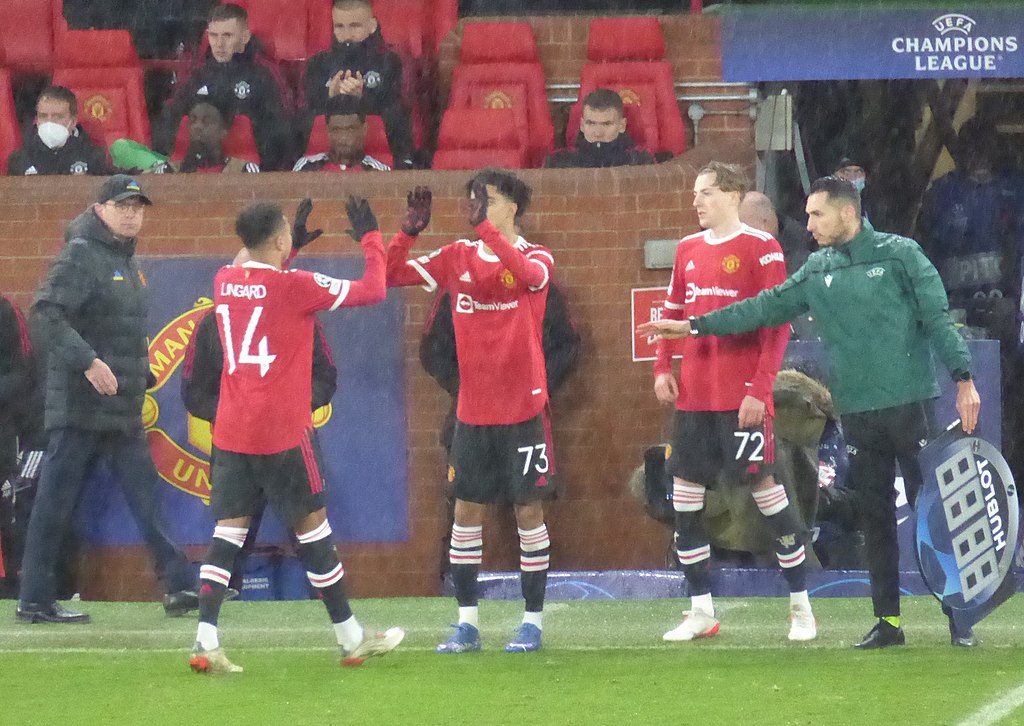
For British South Asian supporters of United, Iqbal’s Champions League appearance carries unique symbolism.
British-Pakistani United fan, Usmaan Akhtaar said. “I was extremely overwhelmed with emotion. From joy, to pride, to fighting back the tears. I thought, ‘Finally someone that looks like me on the big stage!’
“Aspiring Asian footballers have now seen a player with their roots play at the highest level in the Champions League. They now know it’s possible.
“It’s something I’ll never forget.”
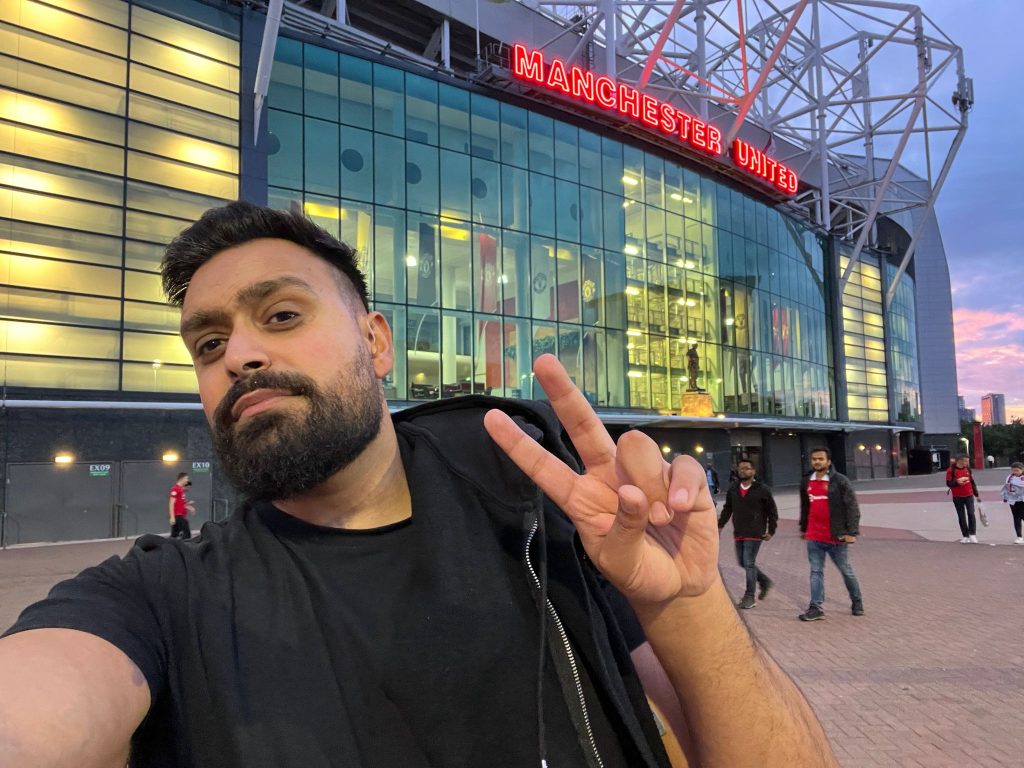
Iqbal is of Iraqi and Pakistani heritage, and is eligible to represent England, Iraq, and Pakistan on an international level.
He has captained the Iraqi U23 team in a West Asian Football Federation (WAFF) Championship match, and made his senior debut for the Iraqi national team earlier this year in a World Cup qualifier against Iran.
On 26 June, it was announced Iqbal would move to Dutch side FC Utrecht for an undisclosed fee – though it has been reported he was sold for just £850,000.
The underwhelming price tag of a promising homegrown talent has left many United fans shocked.
Supporters group United4Fans spokesperson Dave said: “I was very surprised to see him go for such a small fee. He has a lot of potential.”

Dave praised the midfielder for being a positive influence in football: “My daughter doesn’t really like football, but they had talked about [Iqbal] at her school in Didsbury as a great Muslim role model.”
Iqbal has spoken openly about his faith, citing fellow Muslim midfielder Mesut Özil as a personal inspiration: “Just seeing another Muslim footballer is a good thing.”
British South Asian representation in association football is disproportionately low. According to an ITV report, only 17 of the nearly 4,000 professional footballers in England identify as British South Asian.
Fan groups like Desi Ballers – an online group dedicated to documenting the progress of South Asians in football – aim to tackle this.
Zohaib Rashid, 38, a spokesperson from Desi Ballers, said: “There’s a spectrum of reasons why South Asian representation has been low, ranging from discrimination and racism, and lazy stereotypes.
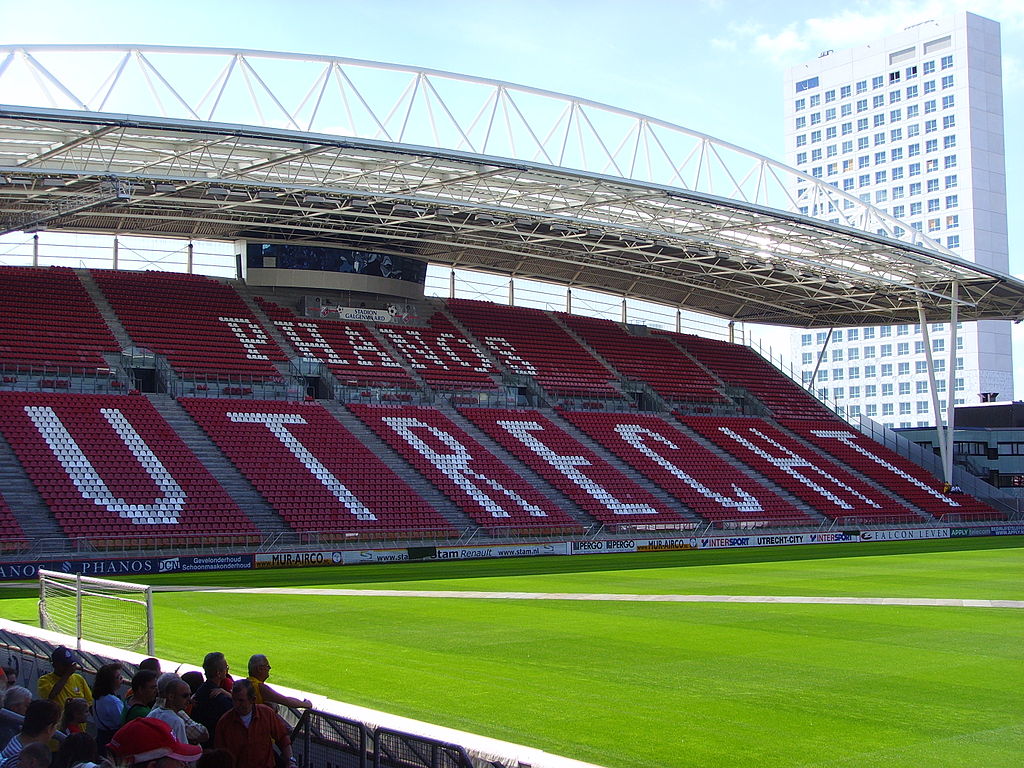
“There’s also been a lack of exposure to pathways and parents and players who embark on this journey can feel like they are on their own. Up until recently, there hasn’t been a concerted effort to tackle the lack of representation.
“But there’s been a great shift, especially amongst young players, to be more open and express themselves. Zidane’s also been open to speaking to young people to inspire them, including those who are in the football academy system.”
In the last year, there has been an increase in South Asian representation within professional football. The Professional Footballers’ Association reports a 12.6% increase in players at all levels of elite football identifying as of South Asian heritage.
The same data reports that 63% of academies have at least one player of South Asian heritage, compared to 53% in 2021/22.
To further remedy the issue, the PFA has launched a number of inclusion schemes, including the Asian Inclusion Mentoring Scheme (AIMS).
AIMS is a mentorship scheme seeking to help increase South Asian representation in football by pairing scholars and academy players with senior Asian players.
Zohaib said: “What we are seeing now is the PFA taking an active step through the AIMS scheme, and the likes of FA, Premier League and other football organisations setting up their own initiatives which are being measured year-on-year.
“It will take time as what’s being put in place now should benefit the current 5 to 10-year-olds, who in 10 years’ time will be 15 to 20 years old. And that’s how we will be able to measure impact.”
Usmaan agrees: “I think the current lack of representation comes down to perception and lack of opportunities.”
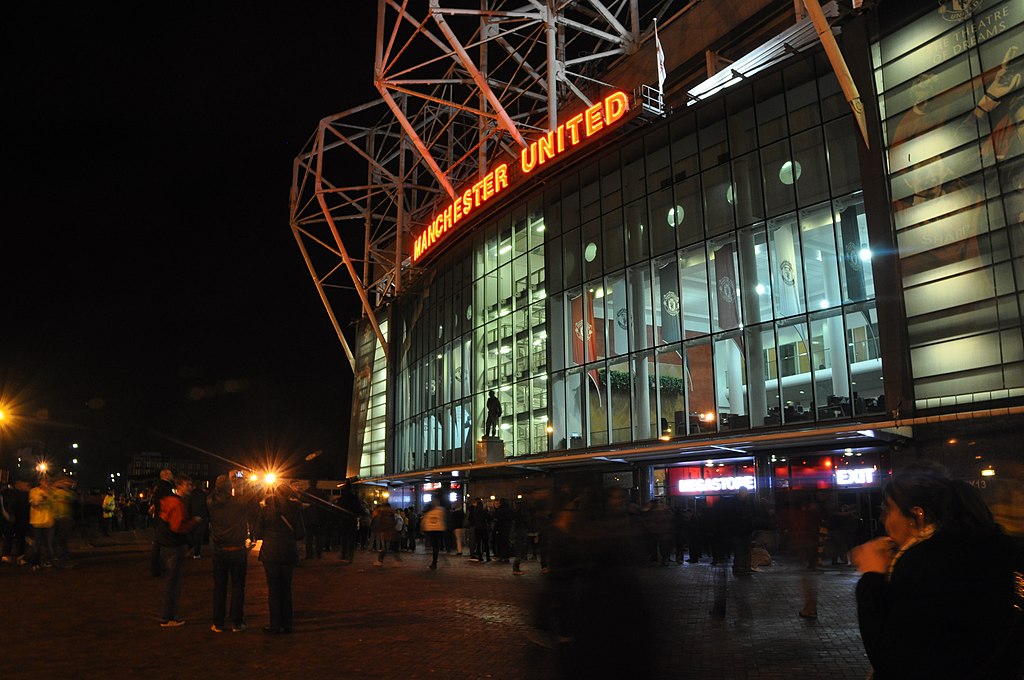
“Sadly, there are a lot of misconceptions about South Asians and whether they have the talent. Of late we have seen a small number of breakthroughs within the sport, but there’s a long way to go till we see major change which comes from the top.
“More projects and funding needs to be provided towards the communities that work closely with South Asians to help create those pathways.”
Usmaan believes Iqbal has the potential to thrive at Utrecht in the face of these social adversities.
“The amount of success he has is depending on his work ethic, it’s a new environment and new surroundings. It’ll take time to adjust given he’s been at Manchester United since he was seven.
“However, he has all the talent in the world to truly thrive, it’s important for him to play regular minutes and truly learn his craft. As long as he applies himself and works hard, there’s no doubt he’ll shine.
“And – who knows – he may return home to United one day!”
Featured Image: Ardfern via Wikimedia Commons
